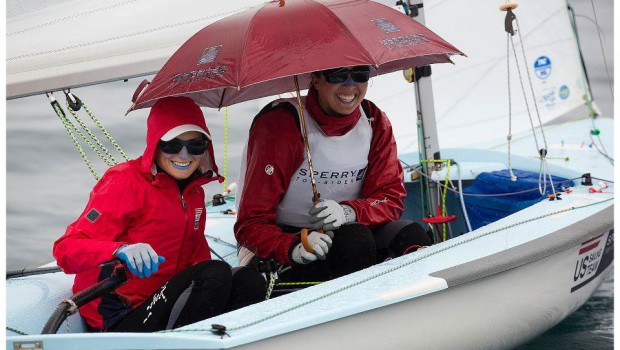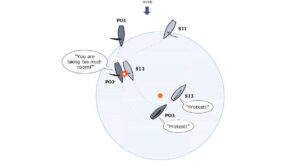Battling our Greatest Adversary
Published on April 23rd, 2018
While Peter Harken has dedicated his life to engineering innovating sailing solutions, his wife Dr. Edit Olasz Harken, a practicing dermatologist, has devoted her life to skincare. Together they’ve now launched skincare solutions for the toughest conditions.
But unlike the smooth roll of a ball-bearing block, how we handle our health decisions is not always as obvious. For sunscreen, aside from getting a painful sunburn, or the anguish of witnessing someone with skin cancer, developing good habits is based largely on expert advice.
As we anticipate the launch of Harken Derm, the American Academy of Dermatology (AAD) offers plenty of information to refresh our consciousness. Their Sunscreen FAQs cover a lot of territory while this information decodes the sunscreen lingo:
What is broad spectrum sunscreen?
The U.S. Food and Drug Administration (FDA) meaning is that the sunscreen can protect you from the sun’s harmful ultraviolet A (UVA) and ultraviolet B (UVB) rays.
Why you want broad spectrum sunscreen:
It can protect your skin from the sun’s UVA (aging) rays and UVB (burning) rays, which helps prevent:
• Skin cancer
• Early skin aging (premature age spots, wrinkles, and sagging skin)
• Sunburn
What is SPF?
FDA meaning: How well a sunscreen protects you from sunburn.
To simplify things, you may want to think of the sun protection factor (SPF) as the “sunburn protection factor.”
About SPF numbers:
Another confusing thing about SPF is the number that follows it. This number tells you how much UVB light (the burning rays) a sunscreen can filter out.
Here’s what the science tells us about how much UVB light different SPF’s can filter out:
• SPF 15: 93% of the sun’s UVB rays
• SPF 30: 97% of the sun’s UVB rays
The AAD recommends using an SPF 30 or higher.
It’s important to know that no sunscreen can filter out 100% of the sun’s UVB rays. That’s why it’s important to also wear protective clothing and seek shade.
What is waterproof sunscreen?
There’s actually no such thing as waterproof sunscreen. Sweat and water wash sunscreen from our skin, so the FDA no longer allows manufacturers to claim that a sunscreen is waterproof. Some sunscreens are water resistant.
What is water resistant sunscreen?
FDA meaning: How long (either 40 or 80 minutes) the sunscreen will stay on wet skin. The sunscreen must undergo testing before it earns the water resistant designation.
• Water resistant: The sunscreen stays effective for 40 minutes in the water. At that time, you’ll need to reapply.
• Very water resistant: The sunscreen stays effective for 80 minutes in the water. Yes, after 80 minutes, you’ll need to reapply.
Even if your skin remains dry while using a water resistant sunscreen, you’ll need to reapply the sunscreen every 2 hours.
Why reapply sunscreen?
Once applied, sunscreen only lasts so long on our skin. The sun’s rays break down some sunscreens. Others clump and lose their effectiveness.
To continue protecting our skin from the sun when outdoors, we must reapply sunscreen:
• Every 2 hours
• After toweling off
• When sweating*
• After being in water*
*When using water resistant sunscreen, you’ll need to reapply every 40 to 80 minutes.
What does the word “sports” mean on sunscreen?
The FDA has NOT defined this term for sunscreen.
When you see the word “sports” on sunscreen, it usually means that the sunscreen will stay on wet skin for either 40 or 80 minutes. To be sure, check the label. You may also see the words “water resistant” or “very water resistant.”
To protect your skin, you’ll need to reapply sports sunscreen:
• When sweating (every 40 or 80 minutes)
• After toweling off
• After getting out of the water (or every 40 or 80 minutes)
• Every 2 hours (when not sweating or in the water)
For more information from AAD… click here.









 We’ll keep your information safe.
We’ll keep your information safe.